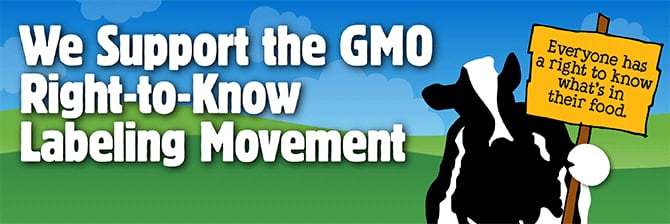The NPA - which opposed California’s Prop 37 GMO labeling initiative amid concerns about a tidal wave of litigation arising from its private enforcement provisions, and frustration with its limited definition of 'natural' foods - said any federal law should not include private enforcement provisions.
NPA executive director and CEO John Shaw said that a patchwork of different rules across different states would be a regulatory nightmare for industry: “To have hundreds of different state and local requirements would be counterproductive and expensive.”
He added: “A national standard is the best, most cost-effective and least-confusing way to deliver on this commitment for American consumers.
“As the nation’s largest association of the natural products industry, NPA is ready to play a leadership role in this effort.”
The principles adopted by the board at the NPA, which represents retailers, manufacturers, wholesalers and distributors of natural products, include:
- NPA believes consumers have the right to be informed whether genetically modified components are in their foods.
- NPA supports and encourages the voluntary labeling on non-GMO foods.
- NPA believes that consideration of federal law promoting a uniform standard is warranted to avoid separate standards for GMO labeling at the state level.
- NPA opposes a private enforcement provision, which encourages abusive litigation, to impose compliance.
- NPA supports the FDA consistently reviewing the concept of bio-equivalency of genetically modified ingredients in light of the most recent scientific studies.
The guiding principles will serve to clearly delineate the NPA's position on any legislation that might be introduced, whether at the state or federal level, said the association.
"The Work Group recommends that NPA staff reach out to and engage in dialogue with industry stakeholders to influence future GMO related policy proposals in accordance with these principles."
We encourage more industry voices to come to the table

The NPA's move - which comes hot on the heels of a pledge from Whole Foods Market to label GMOs in its stores by 2018 - was immediately welcomed by the Just Label It coalition, which encouraged other industry groups to come forward.
“More and more representatives from the food industry, such as the Natural Products Association, are recognizing the importance of labeling GE foods” said Scott Faber, Executive Director of Organic Voices and VP of Government Affairs at the Environmental Working Group.
“Every American should have the right to know what is in their food, a right that consumers in 62 other countries already have. We encourage more industry voices to come to the table and support the 90% of Americans who want the right to know whether the food they're eating and feeding their families contains GE ingredients.”
Is federal GMO labeling legislation now inevitable?
Although the highest profile state-level GMO labeling initiative - California’s Prop 37 - was narrowly defeated in November, it has been followed by a series of other bills, or proposals in Vermont, Washington State, New Mexico, Hawaii and several other states.
While some of these initiatives have high-profile industry supporters such as Ben & Jerry’s co-founders Jerry Greenfield and Ben Cohen, they have, however, been strongly criticized by other food and beverage manufacturers, which argue that labeling foods containing GE ingredients erroneously implies that there is something wrong with them - and will increase costs without benefiting consumers.
FDA: Genetically engineered foods don't need to be labeled if they do not differ from other foods in a meaningful or material way
Currently, federal law does not require the labeling of genetically engineered foods as the FDA has consistently argued that they do not differ from other foods "in any meaningful or material way" or present any different or greater safety concerns than foods developed by traditional plant breeding methods.

While the Grocery Manufacturers Association (GMA) has consistently opposed GMO labeling initiatives in individual states, several of its members are reported to have attended a meeting in Washington earlier this year to discuss federal labeling options amid concerns that complying with a patchwork of different GMO labeling rules across multiple states could prove to be a nightmare for manufacturers.
To date, GMO labeling proposals have been introduced at state level. However, Rep. Peter DeFazio, D-OR is working on a bill that would make the labeling of foods containing genetically modified organisms a matter of federal law.
If passed, the bill, which is still in its early formative stages and which has Rep. Jared Polis, D-CO as potential co-sponsor, would supercede the numerous state-level efforts underway to pass GMO labeling laws.
John Shaw told us: "NPA is studying various proposals, including the congressman’s, but are not taking any positions on specific legislation at this point during our review.
"This is the beginning of the process, but there is growing momentum behind this issue and we want to work with everyone involved to make it the best it can be for all those involved.”
